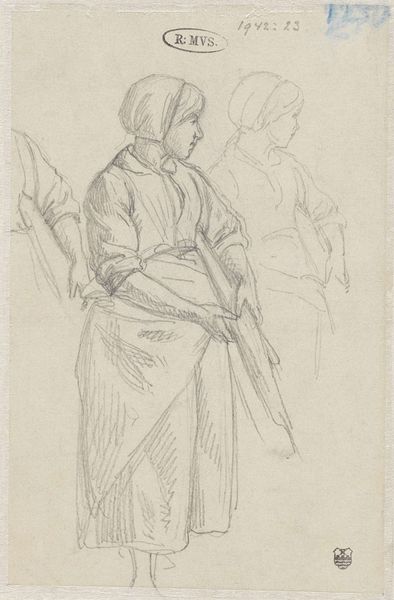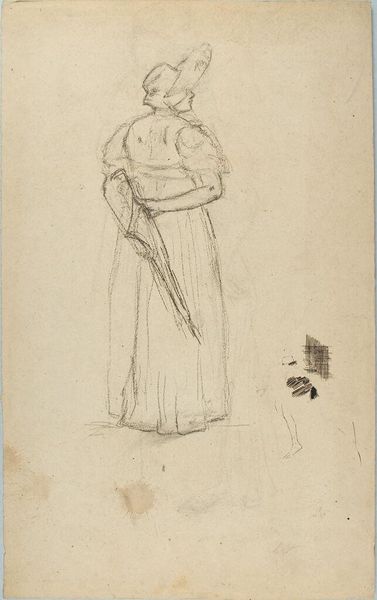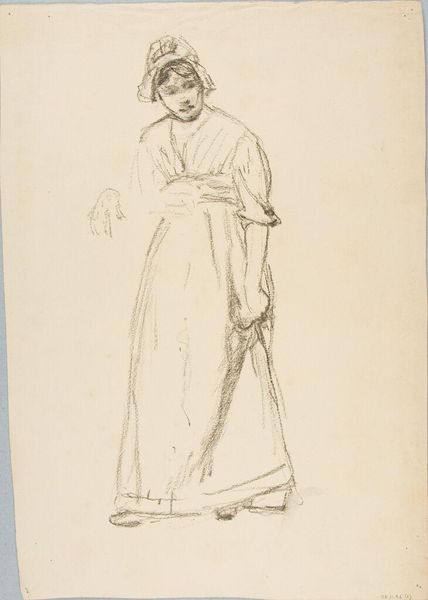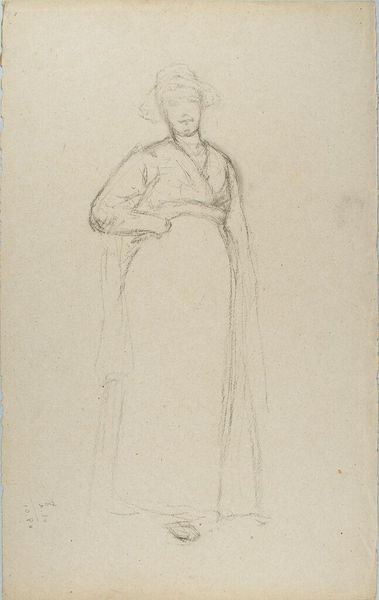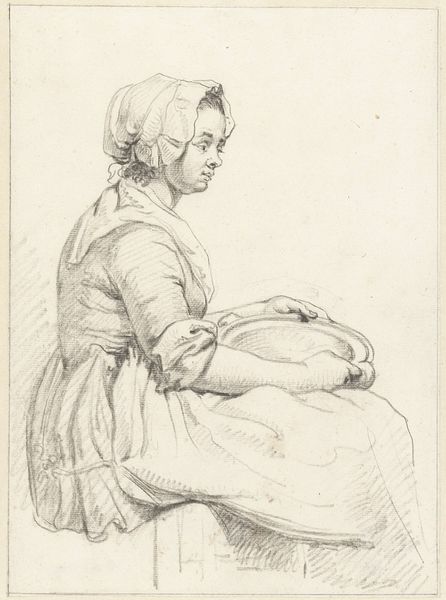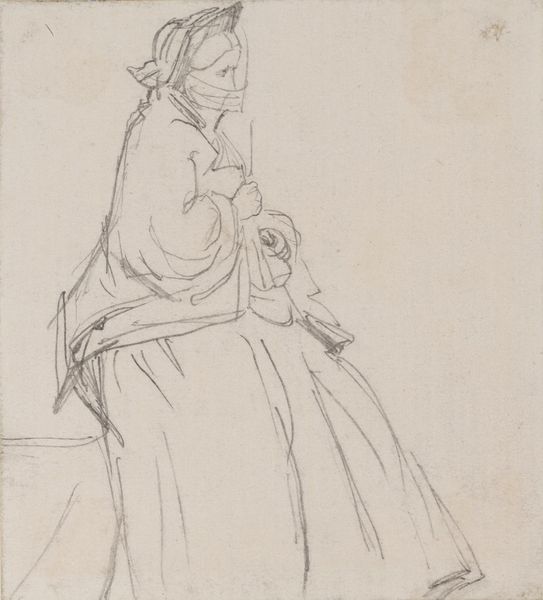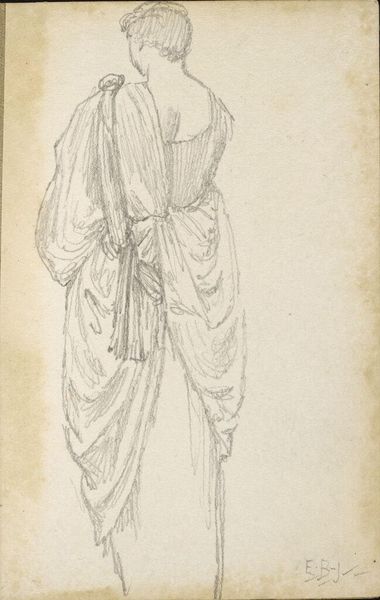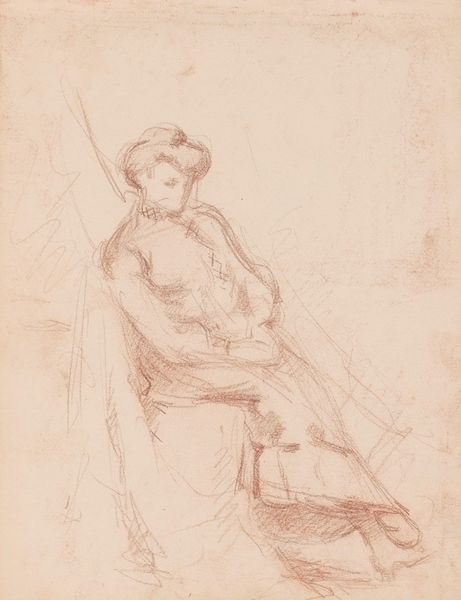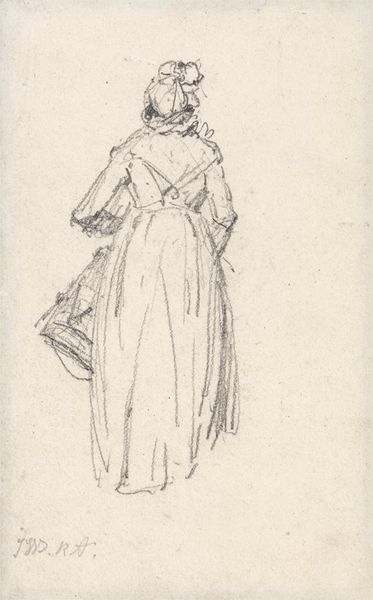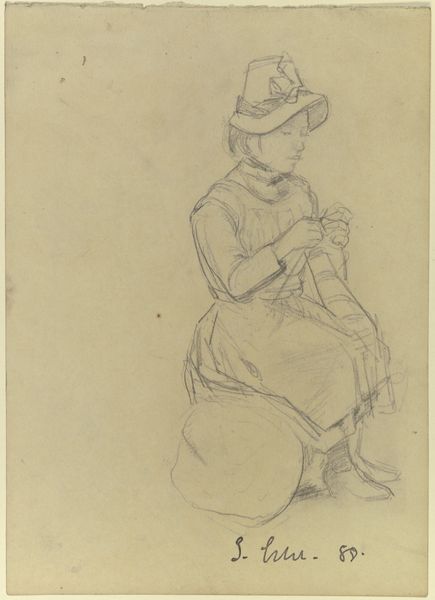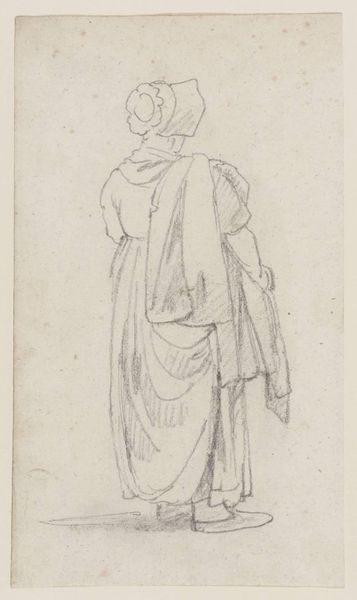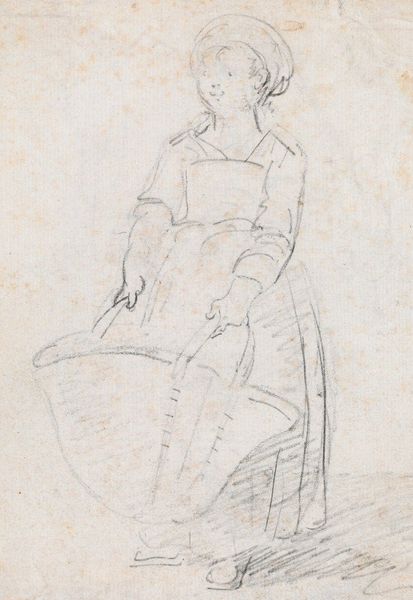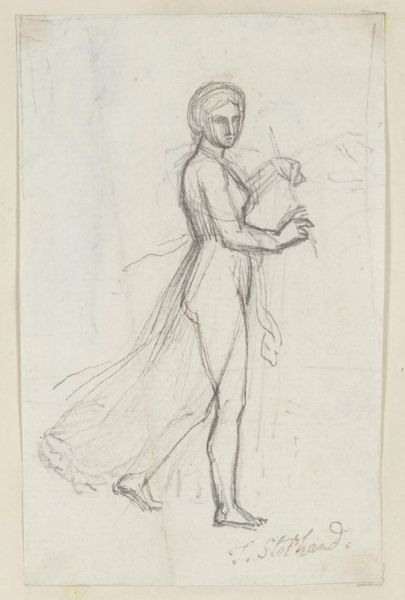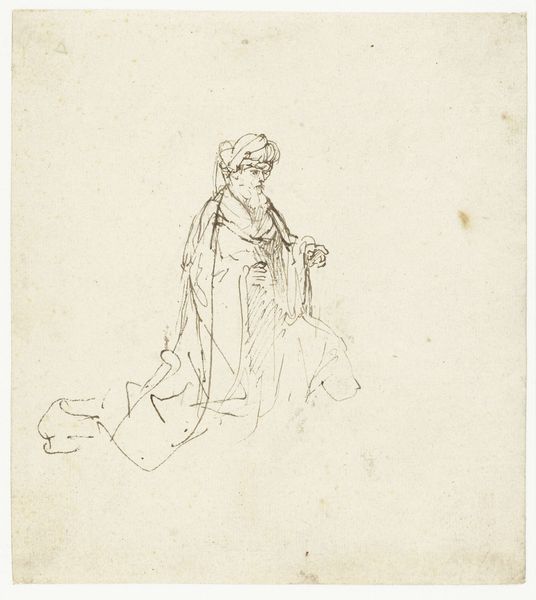
pencil drawn
amateur sketch
light pencil work
shading to add clarity
pencil sketch
personal sketchbook
idea generation sketch
sketchbook drawing
pencil work
initial sketch
Dimensions: height 167 mm, width 110 mm
Copyright: Rijks Museum: Open Domain
Curator: This delicate sketch is entitled "Schets van een meisje," or "Sketch of a Girl," attributed to Philip Sadée. While his working dates range from 1847 to 1904, we lack a precise creation date for this study, which currently resides here at the Rijksmuseum. Editor: The light touch of the pencil gives it an immediate sense of intimacy. You can almost feel the artist working rapidly, trying to capture a fleeting moment, a sense of her quiet poise. Curator: Indeed, sketchbooks offer such compelling insights into artistic processes. Consider how many rapid decisions, and potential alternative versions, must underpin a single resolved painting shown in a gallery. It humanizes the production of artwork, in a way. Editor: Absolutely, and the material itself--the pencil on paper-- speaks to a ready availability, a democratization of image-making. The relative affordability of these materials compared to paints is striking, and we should also consider where he may have been sketching. Perhaps in public. Curator: Very likely. These are things to take into account, and think how sketching also functioned as a means of study for artists seeking formal training. Editor: What is especially engaging is to contemplate her social context. She looks like she's wearing some kind of uniform perhaps. We should not discount it representing specific clothing types tied to class or labor. Curator: It seems reasonable, in light of Sadée's known subjects, such as depictions of fishermen and village life. The artist was entrenched within his locality. So what's on display isn't about some ideal of art divorced from reality, but engagement and observations on daily conditions, wouldn't you agree? Editor: I'd have to concur, and add this pencil work serves not just as art but documentary too. In a sense, it offers a crucial material connection between the labor of depiction, and a glimpse into the depicted's possible occupation. Curator: It prompts reflection on not just artistry but how the work interacts within and comments on socio-political factors. Editor: Well, I'll certainly look at sketches differently from now on. It is more than preliminary and could act as a cultural artifact.
Comments
No comments
Be the first to comment and join the conversation on the ultimate creative platform.
